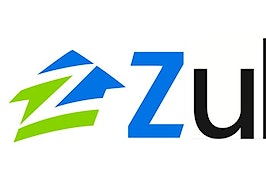So it’s official. Zillow is buying Trulia. And Brad Inman argues that this is now “checkmate” for the traditional real estate industry.
As he suggested a few months ago, Brad sees brokers as trapped between portals on one side and top producing agents on the other, and believes that “Zulia” will soon win the hearts and minds of consumers to extend its industry dominance.
Maybe he’s right. And I should be clear that this is Brad’s take, not necessarily the goal for Spencer Rascoff, who has made great efforts to position and promote Zillow as an ally rather than a challenger to the industry.
But who is to say that this is the end? Right now, Zulia is far and away the biggest and probably the best online listing portal in the industry. But it was only eight years ago that Myspace was “the fastest-growing property on the Internet, perhaps in Internet history.”
The story of the Internet for the past 20 years has been a history of industry leaders reduced to also-rans — not just Myspace but Netscape, AOL, Yahoo, etc., all of whom dominated their space. Until they didn’t.
The people running Zillow are whip-smart, so they know better than anyone that they’re one nerdy guy in a hoodie away from being Myspaced. After all, they did it to realtor.com, someone could do it to them.
That said, Brad’s argument still holds — if not Zulia, then it will be “Zuliakiller,” an even better site that if anything will accelerate the traditional industry’s decline. Different site, same result.
But what if “Zuliakiller” is actually a “white knight” that comes out of the industry itself. Just for fun, let’s say that Realogy’s acquisition of ZipRealty is a play to get into that space. What if Alex Perriello and his team turned ZipRealty into that white knight, offering brokers all that stuff they say they want: no “no follow” tags, no competing advertising on your listings, no holding back listing information, no “premium packages,” etc. Just a straight pass-through of listing information from brokers to consumers.
Make deals with all the Realogy franchised companies, then the other franchises, then the big brokers, then eventually everyone. The pitch: “Why are you feeding a business model that takes your content, builds an audience with your content, and then charges you to keep your content from becoming a billboard for other brokers?”
So maybe the white knight doesn’t become a $5 billion company, without all that premium package loot. Realogy doesn’t need that. ZipRealty could make money on noncompeting lifestyle advertising, maybe on higher-level statistical analysis. Realogy could be content to own an industry-friendly portal worth a bit more than what they paid for it, but one that protects its flank against potential abuses from a dominant outside player.
(I should make clear that although my company is franchised with Realogy, I have absolutely no idea if that’s Realogy’s intent, and no inside knowledge whatsoever. I’m just speculating. Not even informed speculation. Just making stuff up.)
Could that happen? Brad thinks the Trulia acquisition is “checkmate” because he sees Zillow like Amazon, and the traditional industry like the booksellers who are at the mercy of their advertising channel. He would argue it’s too late to disrupt the disruptor. That flagship has sailed.
But Amazon is the wrong analogy. First of all, Amazon is a lot more dominant in its space, recognized in some parts as the “most favored brand in America.” More importantly, Amazon is a retail website — it’s a place you buy stuff. Zillow is not a retail website — it’s a place you browse for stuff. It’s not a “buying” website, it’s a “shopping” website.
Heck, most of Zillow’s visitors aren’t even shoppers, they’re just people who like looking at houses. Zillow had over 80 million unique visitors last month. And for the whole country, we will have about 6 million homes (houses and condos) sold this year.
So basically, Zillow has a lot of people looking at real estate porn. That has value, certainly, but it’s not the value that Amazon brings to manufacturers and retailers as sales channel. Someone who clicks on a widget on Amazon is a lot more likely to buy than someone who clicks on a real estate listing. We all know how conversion rates on Internet leads work.
Here’s the thing: Brokers don’t need Zulia to sell a home. Ten years ago, we all understood that advertising homes was something we did for sellers, not something we did for sales. So how did we go from “advertising doesn’t sell houses” to “OMG WE NEED TO BE ON ZILLOW!”?
Zulia is an advertising channel. A really great one, to be sure. But it’s just an advertising channel. And unlike newsprint advertising, where you had only one major paper in town, the Internet is lousy right now with startups that are trying to become the Zillow alternative. And all of them are about to move up one slot in the rankings. And a lot of them wear hoodies.
Maybe Brad would argue that Zillow has already won the hearts and minds of consumers, and that homeowners would compel brokers and agents to advertise their homes for sale on Zulia. Certainly, that’s the point of Zillow’s recent television advertising campaign, to extend its brand awareness with consumers to cement its positioning. They sure look a lot like traditional industry ads, don’t they?
But even with the increased brand awareness that’s come from that advertising, I don’t think that Zillow has made itself anywhere near indispensable to the average consumer. You forget that most people don’t pay attention to real estate advertising unless they’re actually in the market, and they’re not in the market all that often.
People still ask if I’m the guy from “Prudential Rand Realty,” even though my company has been with Better Homes and Gardens Real Estate for over five years. Heck, people still ask if I’m the guy from “Century 21 Rand Realty,” which was almost 20 years ago.
They just don’t pay attention to real estate brands unless they’re in the market, and a lot of them haven’t been in the market in the past seven or eight years.
So, yeah, Zillow has enormous traffic of people looking at houses, and there are LOT of people looking at houses, but according to its own chief marketing officer, Zillow needed to start advertising when it found that only 12 percent of Americans could name “Zillow” when asked to name a real estate website. And I would bet that many of those people probably bought or sold a house in the past couple of years.
So it’s not as if the average person who hasn’t sold a house in 10 years is going to ABSOLUTELY INSIST that his listing is on Zillow.
Indeed, even for sellers who have heard of Zillow, a good agent can handle that objection:
I know you’re heard of Zillow, and that you might think it’s a good idea to list your home there. But let’s take a look at the site. See this listing? Basically, Zilllow uses your listing as a billboard to advertise for brokers who have competing listings. See all those floating heads? I don’t even know most of those people, and trust me most of them have never even SEEN this particular home. But an interested buyer could easily be tricked into clicking for more information from one of these jokers, who couldn’t care less about selling this house and have their own competing listings they’re trying to sell. You don’t want to advertise other people’s homes, do you?
And that’s not even counting the trump card — the love-hate relationship that people have with the “Zestimate”:
You see the list price of this home? $495,000? In my view, that’s pretty close to market value. But you see the “Zestimate” down there? $425,000? How happy do you think that seller is advertising his home for sale on a site that’s undermining his asking price? That might be good for buyers, but it’s not doing him any favors. You don’t want that, do you?
So you tell me whether a good agent can direct a client away from Zillow.
“Ahh,” says Brad, “but what about the agents?” Would the agents go along with brokers who wanted to abandon Zulia to drive traffic to company and agent websites?
In a second. First of all, most agents already have a love-hate relationship with Zillow. They love the leads, but they hate having to pay for them. And they mostly despise the Zestimate. Second, the most powerful and successful agents in the industry are really brokers themselves, running big teams of junior agents and usually absorbing the lion’s share of the cost for all those premium packages. They have the same issues with Zillow that big brokers have.
The nice thing about being in sales is that you tend to be persuasive. The other nice thing is that no one likes to be persuaded more than someone who is in sales already. So you don’t think that a good broker could convince agents to selectively advertise listings only on their own site, IDX cooperating broker sites, and maybe “bill of rights”-style “white knight” portals?
Remember the basic calculus of the network effects involved — Zillow drives leads because it has listings that draw in eyeballs. Take away the listings, you take away the eyeballs, and you take away the leads, and then agents couldn’t care less about being there. They’ll go where the leads are, meaning that they’ll go where the listings are. Just like buyers.
All that said, I should be clear that I like Zillow. I like Trulia. I’m sure I’ll like Zulia. I like them as a broker, and I like them as a consumer. They’re great. I wouldn’t mind if they softened some of their business practices, but I respect them. And I spend a lot of money on them. Zillow has long made clear that it wants to play well with others, and I take them at their word. So I’m not advocating any of this. I’m just pointing out that if push came to shove, there could be shoving on both sides.
The bottom line is that Zillow needs listings more than listings need Zillow. Which means that Zillow needs the people (brokers and agents) who take those listings more than they need Zillow.
So, yeah, maybe Zillow, as Brad puts it, does “control the chessboard.” But controlling the board doesn’t help you if you don’t have any pieces.
Joseph Rand is a managing partner of Better Homes and Gardens Rand Realty in New York and New Jersey, and also serves as the company’s general counsel. He writes for the Rand Realty Blog and his real estate education blog, “The World’s Best Real Estate Agent.”








